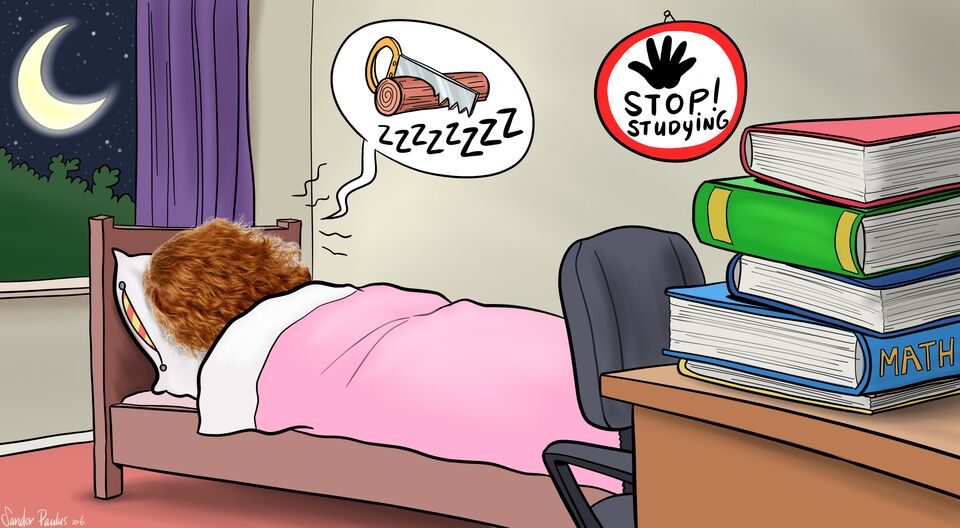Brainmatters | Stop studying
Examination period. A few individuals spend these two weeks in total rest and certainty, while most are grinding away many a tense hour behind their books. Uncertainty or the awareness that it might have been better to start studying the subject matter earlier cause many students to keep studying late, burning the midnight oil. Don’t do it!
Our memory is a funny creature. While it remembers the most ridiculous and irrelevant collection of events, experiences and facts, it hardly seems to be susceptible to our explicit wish to record certain things for eternity - or at least until the coming exams are past. Mnemotechnically challenged persons like myself often find out they have precious little control over this process. Cramming, cramming, cramming is the motto.
This endless repetition of facts is intended to transfer the information from the short-term memory to the long-term memory, a process we call consolidation. Let’s be honest, though: the effectiveness of studying around your usual bedtime is saddening. Your head is throbbing, your eyes are stinging, you force yourself to read the text, but even before you have reached the end of the line you have already forgotten the beginning. It seems as if your brain has switched off.
Still, you can set your brain to work with no trouble at all. The recipe is as follows: find a place with maximum comfort - soft, warm, and with dimmed lights - and place your ear on a pillow. No books are needed under the pillow - there is a better place for them on your desk. Go to sleep!
It was shown even more than a decade ago that sleep leads to consolidation of the memory and even improves it. And in fact we have known this for centuries. Lying in the arms of Morpheus you learn more than when you stay up all night. Regardless whether you have been cramming in the morning, in the afternoon or in the evening, after a night’s sleep you know it better than if you had spent the same time awake. While a brief reiteration of all the facts can even destabilize your memory occasionally. So my advice is: go to bed in time and close your eyes. Sleep and be smart!
Yvonne de Kort is professor of Environmental Psychology at Human-Technology Interaction


Discussion